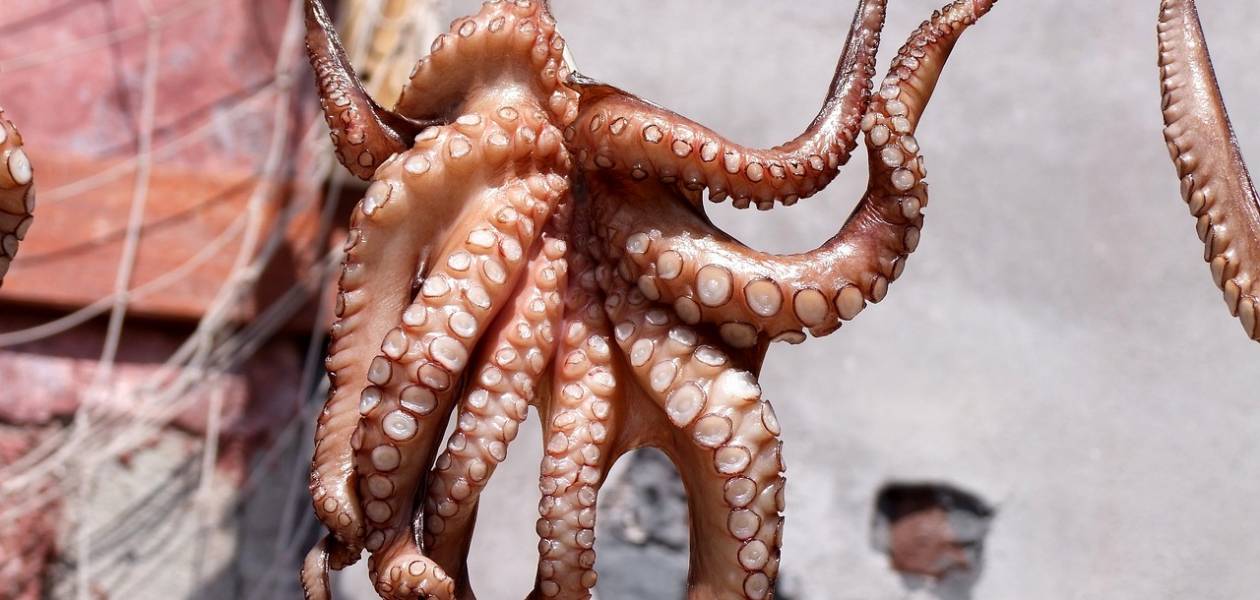
Nearly one million people have already voiced their opposition to the establishment of the first industrial octopus farm by the Spanish company Nueva Pescanova in the Canary Islands through an online petition led by the social mobilization network Avaaz. Despite public opposition and numerous warnings from the scientific community, the company continues to disregard the risks posed by the facility to the health of the local community and the environment.
A study commissioned by Avaaz from the Aquatic Life Institute reiterates the seriousness of the risks associated with the project. The controversial farm is being planned on 61,972.42 square meters of land in La Esfinge basin, within the port of Las Palmas de Gran Canaria, Spain. According to the report, octopuses are susceptible to bacterial skin infections, with the potential for transmission to humans. Furthermore, serious environmental and economic problems can occur without appropriate management of the large amount of waste generated by processing industries. Despite evidence of environmental, economic, and public health consequences, Nueva Pescanova continues to downplay these risks.
Antibiotics and Community Health
The Aquatic Life Institute discovered a key publication that has not yet been mentioned or discussed. The 234-page "Handbook of Pathogens and Diseases in Cephalopods," created in partnership with the European Commission, illustrates the presence of bacterial infections in Octopus vulgaris (the species of octopus that would be farmed) that can infect humans and cause severe gastroenteritis, septicemia, and even death.
Aquaculture facilities are breeding grounds for pathogenic bacteria. Despite Nueva Pescanova's claims to avoid antibiotic use, the inevitability of disease outbreaks in octopus farming makes antibiotic reliance highly likely. Such overuse of antibiotics can further exacerbate the global issue of antibiotic resistance, which has already caused millions of deaths worldwide.
Community Risks
The exploitation of octopus leads to a corresponding growth in processing industries and the subsequent generation of large amounts of waste, demanding considerable disposal costs. The report alerts that serious environmental and economic problems can occur without appropriate management.
Given its close proximity to the sea, the farm could have detrimental effects on local aquatic species due to contaminants and pollutants transferred through discharge. Escapes from the farm pose a further risk of the spread of disease, pathogens, and chemicals if farmed and wild aquatic animal interactions occur. Local communities and their economies may also suffer as a result of the farm's operations, whether through contamination or changes in the marine ecosystem that small-scale fishermen rely on. Impacts on the surrounding communities and their economies as a result of this influx of various wastes and potential contamination events were never considered but could have harmful implications for neighboring populations.
Ban Before It Starts
Since the inception of this project, scientists have consistently highlighted their concerns regarding octopus farming, all of which are related to the fact that these animals, like many others exploited within the food system, are not suited in any way, shape, or form for large-scale farming. Nueva Pescanova has completely failed to recognize the variety of diseases that have already been observed for O. vulgaris, and they have failed to incorporate any farm management practices to prevent the next public health crisis for Las Palmas communities, even though there are documented risks associated with octopus production.
Aquatic Life Institute urges immediate action to halt the establishment of the industrial octopus farm by Nueva Pescanova in the Canary Islands. Based on the overwhelming evidence of the risks to public health, the environment, and local economies, it is imperative that authorities and decision-makers recognize the urgency of this situation. We call on government bodies, environmental organizations, and concerned citizens to join forces and demand a ban on octopus farming before it starts.
Posted on 2023-06-23 12:46








Comments